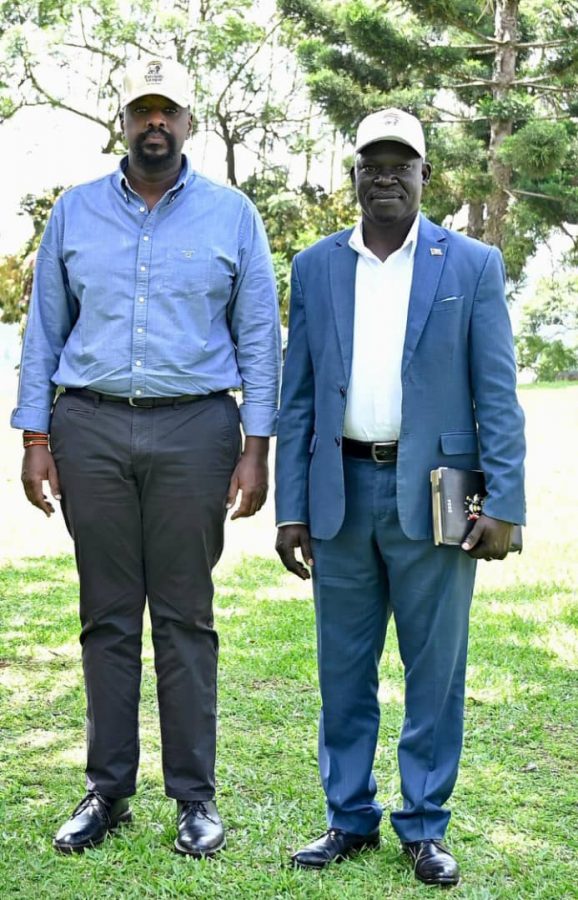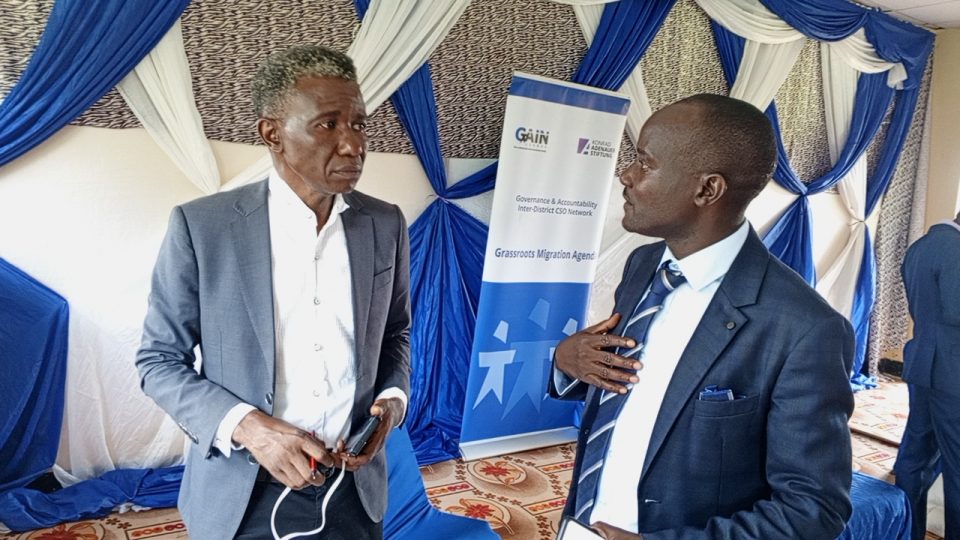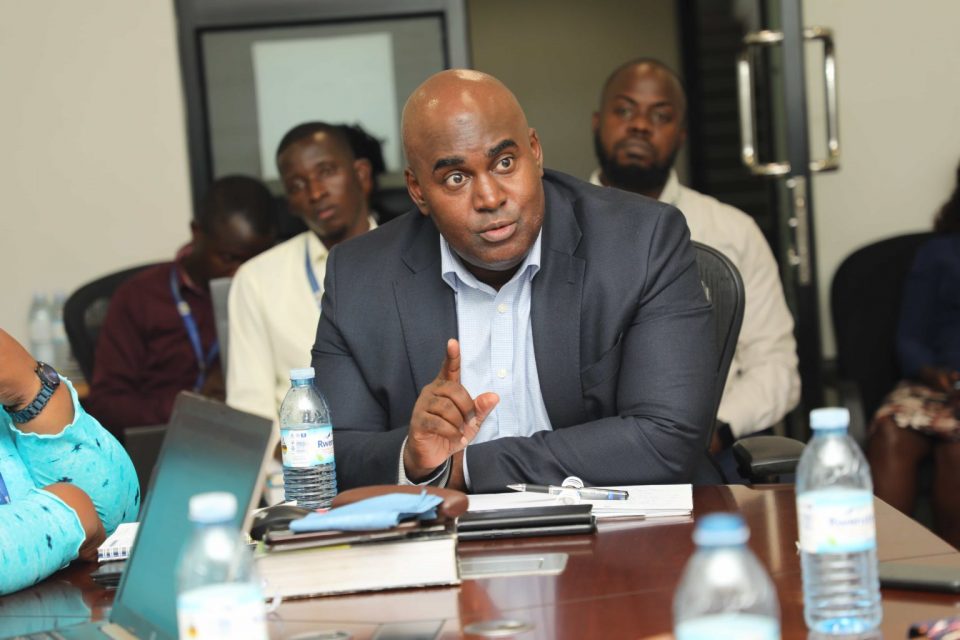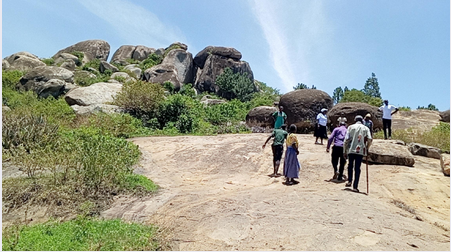
3 dead in Masaka road accident
December 19, 2019
2021 POLLS: 1.3 million to miss voting, Parliament blamed
December 19, 2019CCEDU tells EC to use text messages to rally Ugandans to participate in voter verification exercise

By Francis Otucu
The Citizen’s Coalition for Electoral Democracy in Uganda (CCEDU) Wednesday implored Electoral Commission to use text messages to rally Ugandans to participate in voter verification exercise, an exercise that has seen more than one extension.
This was part of the coalition’s pleas as they met Commission Chairperson, Justice Simon Byabakama at the EC headquarters in Kampala.
In response, Byabakama revealed that they had engaged the Uganda Communication Commission on the same issues, pledging to blast text messages to remind the public on the exercise.
Coalition Board Chairperson, Dr. Miria Matembe told the commission that the coalition is concerned over earlier reports that Ugandans below the age of 19 will not vote.
“We thought we could come and present our views to the Electoral Commission regarding the update of the voter’s register. There is a citizen who turns 18 every other day, as a commission how are you going to ensure they are not denied a chance to vote,” Dr. Matembe, is quoted to have said.
The other concern was the limited time allocate to carry out an update in the voter register.
Armed with explaination, the Commission boss explained that
in 2014, they presented before Parliament the need to amend the law to allow people who turn 18 to register and vote even a month to the elections, but Parliament did not find the suggestion worthy. As such, he said, Electoral Commission is operating based on its mandate stipulated in Article 61(2) of the constitution that gives them the discretion to determine the cut-off date for voter update. This discretion, Justice Byabakama said, is determined by a number of factors, which he said, include among others, the need for proper planning, budgeting for planned activities and printing of sufficient ballot papers for all voters, which printing is usually done abroad.
“All activities on the Electoral roadmap are interlinked and one activity feeds into another. Voter update feeds into display and display feeds into nomination of candidates. For instance a presidential candidate is required to gather 100 signatures from two thirds of the country before he can be nominated, but all the signatures gathered should be of registered voters. “How would a candidate gather these signatures if the update process was delayed,” said Justice Simon Byabakama, the Chairperson of the Electoral Commission.
Justice Byabakama implored the public to appreciate that some of the elections that will be held as early as next year (2020) require that the Voter’s register is ready on time.
“By April next year we shall already have elections for the special interest groups namely: people with disabilities, older persons, the workers and the youth. If the update is left open how then would the commission conduct these elections he wondered. He also said the Electoral Commission is legally bound to carry out update and display within a given timeframe which is calculated from the day of the general elections and 2021 Elections would be conducted in January not February as has been in the previous electoral cycles,” he noted.
“The Commission is not deliberately disenfranchising the voters of a certain category and has tried as much as possible to be accommodative in the two extensions that have so far been granted,” he said.
Leonard Mulekwa, the Head of Operations at the Electoral Commission said, there will be an increase in the volume of elections in 2021.
“For instance in 2016, we had 1,300 sub-counties in 2021 we shall have over 2,000 sub-counties. The parishes have also increased from 9,500 in 2016 to 11,000 in 2021. Each parish must send a councillor to the district. This means there would be variations in production and packing of voting materials which requires timely planning.”
He said six months from now we would have presidential nominations, given this fixed time frame and the number of activities that should take place before nomination, the Commission was very considerate in stretching the update to December 23, 2019.
He explained that after the update, communities at village level will have to re-cross check the register to establish if their particulars were well captured. Then after the re-cross checking there next activity would be display of the voters at all 34,236 polling stations. “The public should, however, be cognisant of the fact that these polling stations could increase based on the information that is picked up in the voter update process,” said Justice Byabakama.
CCEDU further, brought to the attention of the Commissioners the fact that some update centres opened late and closed early especially over the weekend. CCEDU also raised the issue of some learners being turned away from update centres because they did not have national Ids’ and the role of the GISO’s and DISO’s in the update process. CCEDU wondered what their relevance was if there were L.C.I chairpersons involved in the process. The Commission explained that the GISO’s and DISO’s were playing a separate role from the voter update process. CCEDU also raised the issue of the shortage of Form 3 especially in upcountry centres of Bududa, Omoro, Gulu and Koboko as observed. The electoral Commission promised to resolve the issue of Form 3 at update centres. They also informed CCEDU that they had decided to extend the update process to carter for the failing computers and biometric machines, but retaliated that they were optimistic that the process would be much smoother in the remaining days.
Justice Byabakama, thanked Dr. Matembe for her stewardship of CCEDU and tasked the organisation to continue playing a key ambassadorial role of disseminating key electoral information to the public.








